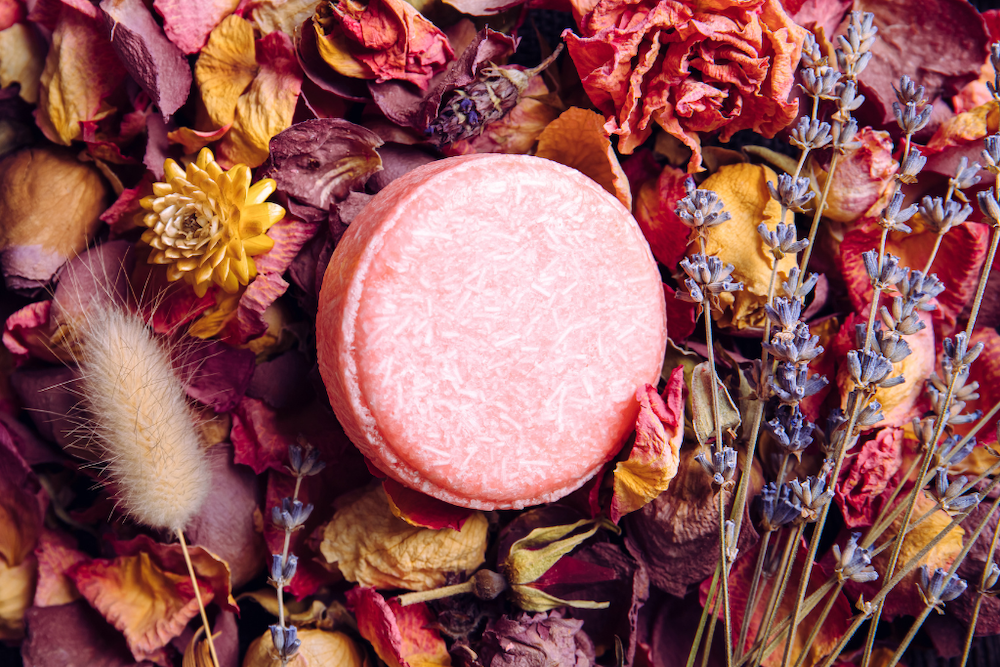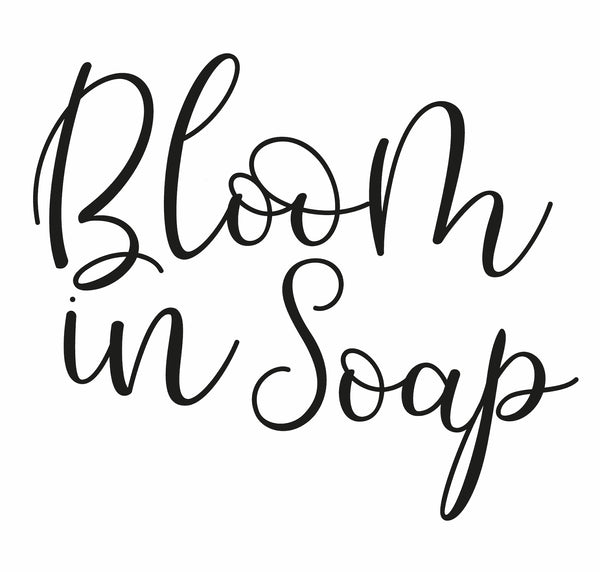
How to choose the best shampoo bar
Share
Are you tired of using traditional liquid shampoos that leave your hair feeling dry and damaged? It's time to switch to a shampoo bar! Shampoo bars are becoming increasingly popular as a more eco-friendly and sustainable alternative to liquid shampoos. But with so many options available, how do you choose the best shampoo bar for your hair and scalp? Don't worry, we've got you covered. In this article, we'll guide you through the process of selecting the perfect shampoo bar for your specific hair type and concerns. Whether you have oily hair, dry scalp, or sensitive skin, we'll provide you with all the information you need to make an informed decision. So, let's dive in and discover the world of shampoo bars!

Understanding your hair and scalp needs
Before you can choose the best shampoo bar for your hair and scalp, it's important to understand your hair type, texture, and concerns. This will help you select a shampoo bar that is specifically formulated to address your individual needs.
For example, if you have thinning hair, you'll want to look for a shampoo bar that is designed to help thicken the hair and boost growth. On the other hand, if you have dry or heat damage hair, you'll want a shampoo bar that is formulated to hydrate and nourish your hair.
Similarly, if you have a sensitive scalp, you'll want to avoid shampoo bars that contain harsh ingredients such as sulphates, synthetic fragrances, and preservatives as these can cause irritation and inflammation. Instead, look for shampoo bars that are made with gentle, natural ingredients such as calendula, glycerine and jojoba oil.

Ingredients to look for in a shampoo bar
When choosing a shampoo bar, it's important to look for ingredients that will nourish, hydrate, and protect your hair and scalp. Here are some key ingredients to look for:
Bamboo extract
A powerhouse plant extract for the hair, bamboo is super rich in natural silica which is known to help improve hair growth. It's also one of the best natural ingredients to add shine and strengthen the hair follicles, while soothing the scalp.
Inulin
Inulin, or chicory root extract, is a 100% natural ingredient that replaces the need for synthetic silicones (commonly used in haircare to smooth, condition and detangle the hair, but can cause build up and weigh the hair down). In contrast, chicory root hydrates and conditions the hair naturally, leaving it feeling silky while enhancing the hair's natural shine without leaving any build up.
Shea butter
Shea butter is a natural emollient that helps to moisturise and soften hair. It also has anti-inflammatory properties that can help to soothe and calm a sensitive scalp.
Pumpkin seed oil
Known as a miracle for thinning hair, pumpkin seed oil conditions and protects the hair while leaving it soft and bouncy. Naturally contains two essential minerals, zinc and magnesium, to help thicken the hair and boost growth.
Horsetail herb
Abundant in natural silica which is used in haircare products to strengthen weak and damaged hair while providing body and shine. Helps to stimulate hair growth and boost circulation to the scalp.
Rose geranium oil
Rose geranium oil helps to balance sebum production on the scalp and hair follicles to promote a healthy scalp while regulating dryness of the hair. Smells absolutely gorgeous too.

Ingredients to avoid in a shampoo bar
Just as there are ingredients to look for in a shampoo bar, there are also ingredients to avoid. Here are some common ingredients that can be harmful to your hair and scalp:
Sulphates
Sulphates are harsh detergents that are commonly used in liquid shampoos to create foam and remove dirt and oil from the scalp. However, they can also strip your hair of its natural oils, causing dryness, breakage, and irritation.
Synthetic fragrances
Synthetic fragrances are often added to shampoos to create a powerful and long lasting scent. However, they can cause irritation and allergic reactions, especially for those with sensitive skin.
Parabens
Parabens are preservatives that are commonly used in cosmetics and personal care products to prevent bacterial growth. However, they have been linked to hormone disruption and other health concerns.

Different types of shampoo bars
Shampoo bars come in different types, each formulated to address specific hair and scalp concerns. Here are some of the most common types of shampoo bars:
Moisturising shampoo bars
Moisturising shampoo bars are formulated to hydrate and nourish dry or damaged hair. They typically contain ingredients such as shea butter, tomato seed oil, or cocoa butter that provide intense hydration and repair damaged hair.
Thickening shampoo bars
Thickening shampoo bars are designed to promote growth and strengthen hair follicles, while soothing the scalp They typically contain ingredients such as inulin, bamboo extract, rosemary and peppermint to strengthen hair while providing body and shine.
Sensitive scalp shampoo bars
Sensitive scalp shampoo bars are formulated with gentle, natural ingredients that soothe and calm the scalp. They are ideal for those with sensitive skin or who suffer from scalp conditions such as eczema or psoriasis.

How to choose the best shampoo bar for your hair and scalp needs
Now that you understand your hair and scalp needs and the different types of shampoo bars available, it's time to choose the best shampoo bar for you. Here are some tips to help you make an informed decision:
Read the label
When choosing a shampoo bar, always read the label to ensure that it is free from harsh chemicals, synthetic fragrances, and other harmful ingredients. Look for shampoo bars that are made with natural, organic, and sustainably sourced ingredients.
Consider your hair type and concerns
Choose a shampoo bar that is specifically formulated for your hair type and concerns. If you have a sensitive scalp, look for a shampoo bar that doesn't contain any fragrance. If you have thinning hair, choose a moisturising shampoo bar that provides hydration and nourishment.
Try before you buy
If you're new to shampoo bars, it's a good idea to try a trial or travel size before investing in a full-size bar. This will give you the opportunity to test the product and see how it works for your hair and scalp.

Tips for using a shampoo bar
Using a shampoo bar is slightly different from using traditional liquid shampoos. Here are some tips to help you get the most out of your shampoo bar:
- Wet your hair thoroughly - Before using a shampoo bar, make sure your hair is thoroughly wet. This will help to create a lather and distribute the product evenly throughout your hair.
- Rub the shampoo bar directly onto your scalp and hair, and work the product into a lather.
- Rinse thoroughly - Make sure to rinse your hair thoroughly after using a shampoo bar to remove any buildup or residue.
- Store your shampoo bar properly - To extend the life of your shampoo bar, store it in a dry, cool place between uses. A soap dish or a ventilated container can help to keep your shampoo bar dry which will make it last longer.

Common mistakes to avoid when using a shampoo bar
While shampoo bars are easy to use and offer numerous benefits, there are a few common mistakes to avoid:
- Not choosing a pH balanced shampoo bar
If a shampoo bar doesn't state that its pH balanced then it's most likely a soap based bar. Soap has a pH of 8-10 which, if used to wash your hair with, will result in higher friction between the hair fibres (think frizzy hair), and could lead to damage and breakage of the hair. A pH balanced shampoo bar is the same pH as your scalp (4.5-6) and provides a gentle cleansing environment that the hair loves.
- Using too much product
Shampoo bars are more concentrated than liquid shampoos, so it's important to use a small amount to avoid buildup and to get the most out of your product.
- Not rinsing thoroughly
Make sure to rinse your hair thoroughly after using a shampoo bar to prevent buildup and to avoid leaving any residue on your hair or scalp.
- Not storing the bar properly
Storing your shampoo bar in a damp or humid environment can cause it to break down more quickly. Make sure to store your shampoo bar in a dry place on a soap rack between uses.

Our recommendations
Shampoo bars are a great alternative to traditional liquid shampoos, offering a more eco-friendly, sustainable, and healthier way to care for your hair and scalp. By understanding your hair and scalp needs and choosing the right shampoo bar for you, you can achieve healthier, more beautiful hair that is free from harsh chemicals and irritants.
We recommend trying out different types of shampoo bars to see which one works best for you. Some of our top picks include Bloom In Soap's award-winning Herbal Boost shampoo bar targeted at weak, thinning hair that needs a boost, Petal Power shampoo bar for dry and heat damaged hair, and Delicate Flower solid shampoo for those with delicate and sensitive scalps. With the right shampoo bar and a few tips and tricks, you can achieve the hair of your dreams while doing your part to protect the planet.

